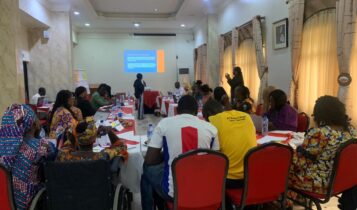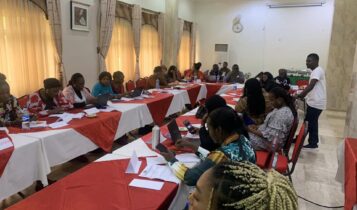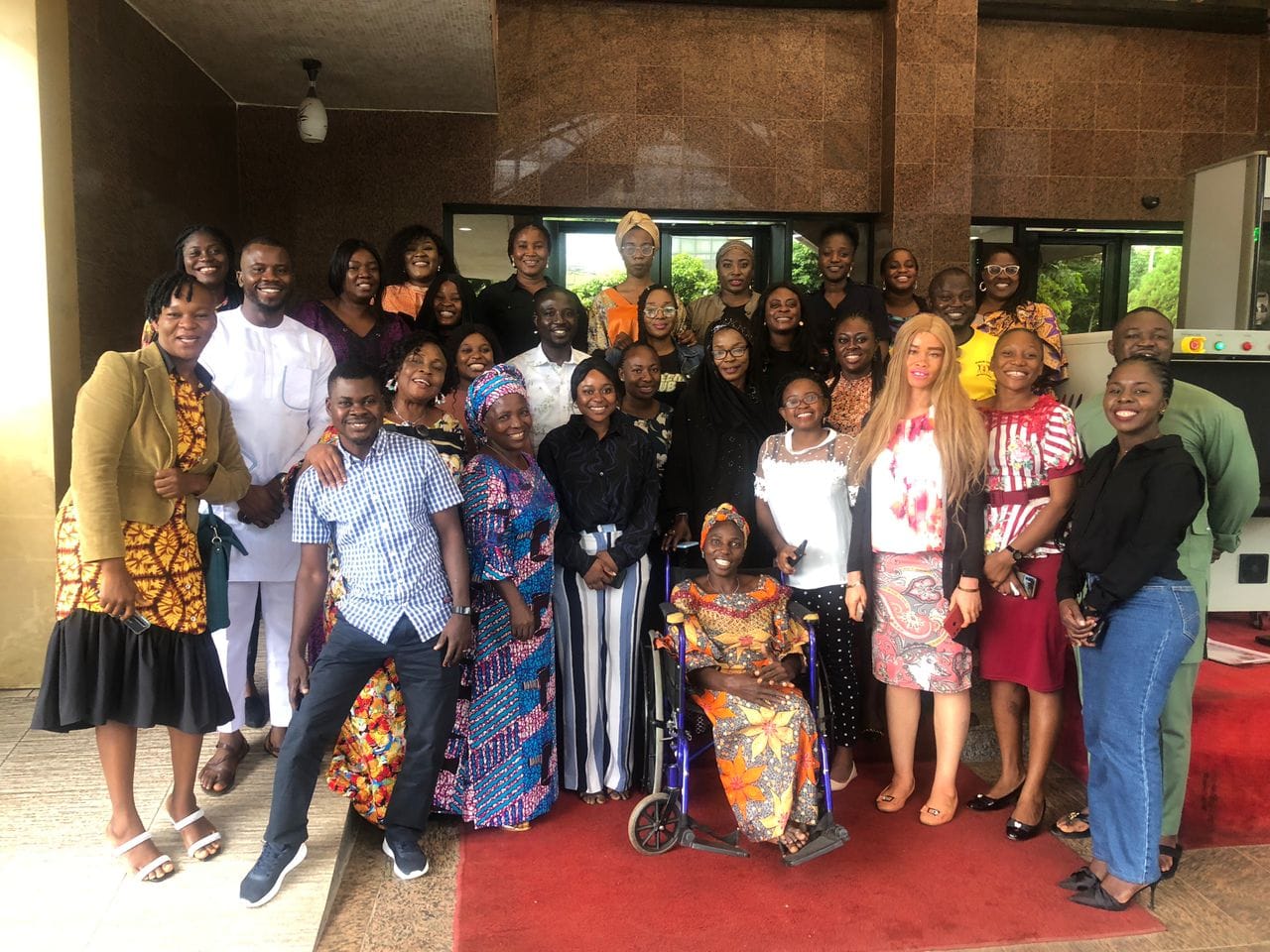The Climate and Sustainable Development Network (CSDevNet) and some stakeholders in the water and climate justice sector, on Thursday, September 1, 2022, reviewed the National Water Resources Bill (WRB) 2022.
This was done through a national consultative dialogue organised by Education as a Vaccine (EVA), a member of the African Women Communication and Development Network (FEMNET), one of the organisations implementing the African Activists for Climate Justice (AACJ) Project in Nigeria. FEMNET mobilizes and facilitates movements of women and girls to engage in decision-making processes for climate-just policies, interventions, and funding.
Judith Gbagidi, Head of Programs at EVA highlighted that the bill had been most criticised in its provision seeking to give the federal government the exclusive right to the surface and underground water affecting more than one state.
Moving through the WRB journey, she mentioned that in 2016, the then-Chairman of the House Committee on Water Resources, Ahman Pategi of Kwara State, introduced the bill to the National Assembly. The House passed an executive law that was later proposed in 2017, but the Senate proved to be a challenge.
“In 2020, the bill was reintroduced to the House and submitted to the Committee of the Whole. Two months later, the Ben Mzondu (PDP, Benue) point of privilege, which highlighted a procedural error in the bill’s reintroduction, forced the House to reverse its decision,” Judith said.

“The bill was re-gazetted by Sada Soli, the head of the House Committee on Water Resources, last month (APC, Katsina). However, the bill was rejected by the governors in a communique that was released after the 5th teleconference meeting of the Nigerian Governors’ Forum (NGF). The communiqué reads, ‘it is in conflict with the constitution of the Federal Republic of Nigeria,” she added.
According to Pius Oko, Executive Secretary at Lift Humanity Foundation, following the WRB 2022 clause analysis: the WRB is against human rights and equitable water justice.
“It is awful enough that citizens’ access to water is proposed to be subjected to licensing by a Commission of the federal government, but this provision further gives arbitrary powers to the federal government to accept or reject applications for such license,” he said.
“If this scales through, it will not be unusual to see a biased regime of licensing which will be largely subjected to antics of the federal government and its commission,” Pius added.
The Gender thematic lead for CSDevNet and Executive Director of Gender & Environmental Risk Reduction Initiative (GERI), Elizabeth Jeiyol, also highlighted that the bill did not properly mainstream the role of women in water governance.
“Evidence has shown that when women influence water management, their communities get measurably better outcomes – including better-functioning water systems, expanded access, and economic or environmental benefits,” she said.
She added that “due to the critical and natural roles women already play in the provision, management and safeguarding of water, legal and policy frameworks such as the water resources bill need to be formulated not only to address the specific needs of women concerning water but also to empower them to participate in water decision-making.”
Nigeria’s water situation is in the throes of a major crisis. While large-scale irrigation and water impoundment projects seem to be in vogue, the availability and accessibility of water to the people seem to be in sharp decline. This is particularly noticeable in the major cities and remote villages with an accompanying added pressure on women and the girls who are the traditional managers of water in a patriarchal society such as Nigeria.
Similar to other inequalities that women and girls experience, access to portable safe water is political and about power, with the stakes steeper for poor rural women and girls. A study on the structure of the existing water planning policy instrument in Nigeria indicated a marked absence of gender considerations and gross sidelining of women and girls, who make up about 50% of the population.
An inclusive Water Resources Bill is not possible without harmonising the voices and needs of women and girls. Even more important is that the inclusion of gender perspectives in water policies be matched by meaningful participation of women and girls in major water decision-making organs in Nigeria. To address these shortcomings, women and community engagements on the Water Resources Bill 2022 is crucial towards facilitating a just response to the water and climate crisis.

Further speaking, John Baaki – Deputy Director of Women Environmental Programme (WEP), opined that if the proposed Water Bill aimed to harmonize existing water frameworks for efficiency, it would have articulated more in its provisions how the water sector relates with other related sectors for integrated water management.
“I suggest that the Bill should expunge licensing from its provisions. Instead, the Commission established by this bill should work with the Federal and State Ministries of Environments for Environmental Impact Assessment of water projects perceived to have environmental and social impacts,” he said.
John added that “if there is anything the water sector needs now, it is subsidies to encourage the establishment of water projects across the country for more quality and access. Water, like air, is a resource that should not be taken out of reach of the citizens with licenses and taxes. Otherwise, the citizens remain perpetually in poverty as there will be no other strategy to bring them out of it.”

